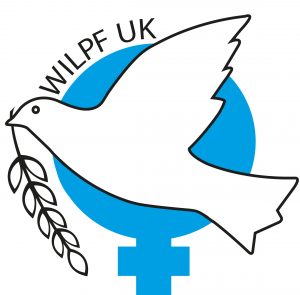There was an active anti-war movement from the outbreak of the First World War and women were increasingly involved. The Women’s International League
(WIL) was established in 1915, growing from the Women’s Peace Congress, an international gathering of women who met at The Hague to protest about the war. 20 British women got government permission to attend but most were unable to do so as shipping lanes were closed. Confusingly, the Women’s International League was the name given initially to what was only the British branch of the International Committee of Women for Permanent Peace. Membership of WIL was open to all women who were British subjects. (1) It was affiliated to the National Peace Council. The minimum yearly subscription to the central ‘branch’ of WIL was a shilling and local branches were free to set their own rates. Caroline Marshall of Keswick paid £1.10s subscription plus a donation of £20.00 in 1917-1918. (2)
In its first year WIL achieved a total membership of nearly 2,500 with 35 branches in addition to Headquarters. (3) At the 1919 Congress Catherine Marshall, daughter of Caroline and prominent peace activist, proposed that the name should be changed to The Women’s International League for Peace and Freedom (WILPF) and this was adopted. (4) WILPF has been in existence for 100 years and is now a truly international organisation working to ensure that women’s voices are heard in peacebuilding.
References/Further Reading:
(1) Women’s International League (British Section of the Women’s International Committee for Permanent Peace) Manifesto, 1915. Archive ref: DMAR 4/77, Cumbria Archive Service, Carlisle.
(2) WIL Third Yearly Report, 1917-18. Archive ref: DMAR 4/80, Cumbria Archive Service, Carlisle.
(3) WIL first Yearly Report (1915-1916). Archive ref: DMAR 4/78, Cumbria Archive Service, Carlisle.
(4) Gass, Katrina & Pleasance, Pat. These Dangerous Women: Catherine Marshall 1880-1962


